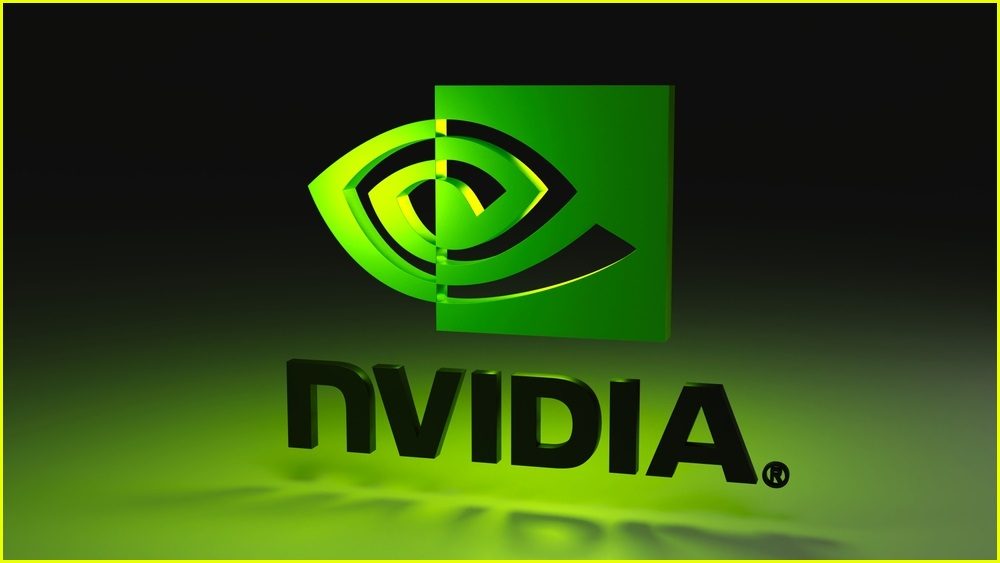Category: Startup
Teen Innovators Secure $500K Seed Funding for AI API Startup
In an inspiring twist to the usual post-graduation story, 18-year-old best friends Christopher Fitzgerald and Nicholas Van Landschoot are trading summer fun for hard work in the world of startups. The recent high school graduates from Boulder, Colorado, have secured a $500,000 pre-seed investment from Varana Capital to launch their innovative venture, APIGen.
From High School Graduates to Startup Founders
High School Achievements:
- Christopher Fitzgerald: Valedictorian of a top-ranked high school in Boulder.
- Nicholas Van Landschoot: A programming prodigy tutoring college-level students since age 14.
While most of their peers are enjoying their last summer before the responsibilities of college or careers, Fitzgerald and Van Landschoot are immersed in the entrepreneurial grind. They have set up shop in a venture capital (VC) office in Boulder, focusing all their energy on APIGen, a startup that aims to simplify API creation through natural language processing.
Future Plans:
- Fitzgerald: Heading to Penn State in the fall.
- Van Landschoot: Delaying college to lead APIGen full-time.
The Birth of APIGen
The concept for APIGen blossomed from the duo’s shared passion for coding and their early exposure to the challenges of API development. The two met on their school’s debate team and quickly bonded over their love for technology. Their first collaborative project was a chatbot designed to facilitate data interaction, but they soon realized the uniqueness of their idea was limited. This realization led them to a pivotal insight about the complexities and difficulties of designing APIs.
“We discovered that creating APIs was cumbersome and not straightforward,” said Fitzgerald. “It was during this project that we decided to focus on simplifying API generation.”
With a prototype in hand, they began showcasing their idea to local programmers and industry professionals in Boulder, a city known for its vibrant tech community.
Securing Investment
Their perseverance paid off when they caught the attention of Philip Broenniman, the founder of Denver-based Varana Capital. Varana Capital, which has grown from a family office to a firm managing $400 million in assets under management (AUM), saw potential in the young founders’ vision. Initially planning to provide mentorship, Broenniman and his team were so impressed by the teens’ presentation that they decided to invest.
Investment Details:
- Initial Meeting: Aimed to provide guidance but ended with an investment offer.
- Term Sheet: $250,000 pre-seed money and $250,000 in a Simple Agreement for Future Equity (SAFE).
- Support: Office space provided by Varana Capital.
Broenniman recalled, “We walked into the meeting intending to offer some advice, but their pitch was the best we had heard in years. Their insights were incredibly sharp for their age.”
The Vision for APIGen
APIGen’s mission is to develop a platform that allows users to create custom APIs using natural language prompts. This approach simplifies the complex process of API creation, making it accessible to users without extensive technical knowledge. The platform aims to serve various needs, from basic data connectors to intricate business logic integrations.
“We’re not just talking about simple data exchanges. Our goal is to generate code for APIs that incorporate complex functionalities and business logic,” explained Van Landschoot.
Potential Use Cases for APIGen:
- E-commerce: Create APIs that integrate web front ends with databases.
- IoT Devices: Develop APIs to control devices like drones and smart locks.
- Security: Generate APIs for face recognition and building security systems.
The founders envision a future where creating APIs is as simple as giving a verbal command. For instance, an e-commerce business could request an API to connect its online store to its inventory database, and APIGen would deliver a functional solution.
APIGen’s Capabilities:
| Feature | Description |
|---|---|
| Natural Language Processing | Users can request APIs using everyday language. |
| Complex API Generation | Builds APIs with integrated business logic. |
| Multiple Task Handling | Capable of generating APIs for serial or multiple tasks. |
| IoT Integration | Supports APIs for controlling IoT devices. |
| Custom Functionality | Allows for highly tailored API solutions. |
Building a Community and Looking Ahead
Fitzgerald and Van Landschoot have quickly integrated into Boulder’s close-knit tech scene. They joined the local AI Meetup, which boasts over 1,400 members and received enthusiastic support from the community. Their early involvement and the positive reception of their product demos have been pivotal in building a network of supporters and potential users.
Despite facing stiff competition from established players like Salesforce’s MuleSoft and RapidAPI, the founders believe APIGen has a unique value proposition. Their approach to API creation, centered on natural language and tailored to specific user needs, sets them apart in the burgeoning API market.
Competition and Market Potential:
- Established Competitors: MuleSoft, RapidAPI.
- Market Size: $7 billion and growing.
- APIGen’s Niche: Simplified and customized API creation.
“We’re entering a competitive space, but we’re carving out our own niche,” said Fitzgerald. “The support we’ve received from the local community and the backing from Varana Capital give us confidence in our path forward.”
Overcoming Challenges and Next Steps
Although APIGen is still in its early stages, the founders are focused on refining their product. They are working tirelessly to develop a minimum viable product (MVP) and plan to release a beta version later this month. The feedback from this release will be crucial as they aim to attract their first set of users and demonstrate the platform’s capabilities.
Development Milestones:
- Current Status: Pre-MVP, working on beta release.
- Next Steps: Beta launch and user feedback.
- Future Plans: Expand functionality and market reach.
Broenniman, who will take a seat on APIGen’s board, is optimistic about the startup’s prospects. He highlights the founders’ ability to build a community around their idea and their potential to make significant returns on investment.
“APIGen is more than just a startup; it’s a partnership with Christopher and Nicholas. They are tapping into a massive market and have already shown they can rally support,” he said. “The potential for returns is remarkable.”
The Road Ahead
As Fitzgerald and Van Landschoot navigate their journey from high school graduates to startup entrepreneurs, they remain focused and determined. Their story is a testament to the power of youthful ambition and the vibrant support networks available in tech-centric communities like Boulder.
With their first major funding secured and a clear vision for APIGen, the young founders are poised to make a significant impact on the API development landscape. Their summer may be spent in an office rather than on the beach, but they are building something that could change the way businesses interact with technology.
As the tech world watches, these two young innovators are proving that with a compelling idea and the right support, age is just a number in the realm of entrepreneurship.
Italian Founders Fund is ready to invest €50 million in entrepreneurs who have global aspirations.
While Italy is known for its rich history and vibrant culture, it is not the first country that comes to mind when thinking of startup hubs in Europe. However, recent developments indicate that this might be changing. Italy ranks eighth in Europe in terms of venture capital investment, a position it is striving to improve with the introduction of the Italian Founders Fund (IFF).
Boosting Italian Startups
IFF has been established with a substantial commitment of €50 million to invest in about 25 promising companies. This new fund is not limited to any specific sector, aiming to be both founder-friendly and versatile, addressing various entrepreneurial pain points. Lorenzo Franzi, a founding partner of IFF, discussed the mission to support early-stage founders in Italy who struggle to find committed lead investors at critical pre-seed and seed stages.
Portfolio Growth and Strategic Goals
To date, IFF’s portfolio already includes four companies, with a fifth deal currently underway. Among these, the fund led a 2023 funding round for the HR tech startup Jet HR, following an investment in the customer research platform Glaut. The strategic direction of IFF focuses on several key areas:
- Key Hires and Commercial Expansion: IFF supports its portfolio companies in identifying and recruiting essential personnel, expanding business operations, and securing strategic partnerships.
- Hands-on Investment Approach: Unlike traditional angel investing, which can suffer from issues like limited analysis and undersized funding rounds, IFF brings structured and proactive support to its investments.
Current IFF Portfolio Highlights
| Company | Industry | Investment Date | Key Focus |
|---|---|---|---|
| Glaut | Customer Research | April 2023 | Enhancing data-driven insights |
| Jet HR | HR Tech | 2023 | Streamlining HR operations |
Addressing Market Challenges
While IFF has set ambitious goals, Franzi acknowledges some limitations. High taxes and complex bureaucratic processes remain significant challenges that a private VC firm alone cannot mitigate. However, recent public initiatives aim to enhance Italy’s appeal and the competitiveness of its tech sector. Unlike state-backed entities like CDP Capital, IFF operates entirely with private funding, giving it the freedom to invest without geographic constraints.
This flexibility will be crucial as IFF plans to support Italian founders both domestically and abroad, and to attract foreign startups interested in the Italian market. The fund also aims to establish connections with foreign VC funds for co-investments in its portfolio, either initially or in subsequent funding rounds.
Global Connections and Local Impact
The influence of IFF extends beyond Italy’s borders. It supports Italian entrepreneurs with global aspirations, helping them to connect and compete on an international stage. Notable global Italian startups like Bending Spoons, known for popular apps like Evernote and Meetup, exemplify the potential of Italian innovation on the global market.
IFF’s Backers: A Broad Spectrum
- Diverse Backgrounds: IFF’s financial backers include approximately 100 Italian entrepreneurs from various sectors and generations.
- Shared Vision: These backers are united by a common goal—to establish Italy as a top location in Europe for launching and growing businesses.
Long-Term Vision and Management
Managed by KOINOS Capital, a private equity firm diversifying into venture capital, IFF is inspired by successful international examples such as the U.S.’s Founders Fund and France’s Galion.exe. These founder-led funds have proven effective in other markets, and IFF aims to replicate this success in Italy.
Conclusion
The creation of the Italian Founders Fund marks a significant step in the maturation of Italy’s startup ecosystem. While venture capital numbers are on the rise, there is still much work to be done. “Challenging the status quo on processes, speed, and an entrepreneur-focused mindset is essential,” Franzi emphasizes. With its comprehensive approach and strategic investments, IFF is poised to play a pivotal role in reshaping Italy’s position in the European startup landscape.
Research from Harvard, MIT, and Wharton highlights the risks of depending on junior staff to train AI systems.
As businesses rapidly incorporate artificial intelligence (AI) into their operations, the prevailing belief is that younger, technologically adept employees will spearhead educating their senior managers on effectively harnessing these advanced tools. However, a recent study challenges this notion, especially concerning the use of generative AI technologies.
Study Details and Key Participants
The study was a collaborative effort involving scholars from prestigious institutions such as Harvard Business School, MIT, and Wharton, in partnership with Boston Consulting Group. The research focused on the interactions and experiences of junior employees with generative AI systems, particularly GPT-4, in real-world business scenarios.
Unexpected Findings from Junior Consultants
Contrary to expectations, the study revealed that junior employees, often presumed to be tech-savvy, might not be the best resources for guiding senior professionals in the effective use of emerging technologies like generative AI. The findings showed that the risk mitigation strategies proposed by these junior consultants frequently contradicted expert advice and lacked a deep understanding of AI’s capabilities.
Key Insights from the Study:
- Junior Consultants’ Tactics: The research highlighted that the strategies suggested by junior employees to alleviate seniors’ concerns about AI risks were often misaligned with expert recommendations. These tactics were more about altering human behavior than enhancing the AI system’s design.
- Focus on Short-term Solutions: Many recommendations were project-specific rather than aimed at broader organizational or industry-wide applications, suggesting a narrow scope of understanding.
In-depth Analysis of the Research Findings
1. Limited Technical Expertise The study found that junior consultants typically had minimal technical expertise in AI. Their recommendations were based more on general knowledge and less on a technical understanding of AI systems like GPT-4.
2. Risk Mitigation Approaches Junior employees tended to focus on immediate, surface-level solutions rather than systemic changes or in-depth strategies that could be more beneficial in the long run.
Challenges in Adopting Generative AI in Business
The rapid evolution of generative AI technologies presents significant challenges and opportunities for businesses. These AI systems can perform tasks such as engaging in detailed dialogues, responding to follow-up questions, and assisting in writing, analysis, and coding tasks. However, the study underscores the necessity of comprehensive AI governance and the need for expert input at all organizational levels.
Navigating AI Implementation Challenges:
- Top-down Governance: Effective AI implementation requires informed leadership rather than relying solely on the knowledge of digital natives within the organization.
- Expert Involvement: Incorporating AI experts into strategic planning and implementation processes is crucial to address potential risks and optimize AI usage.
Moving Forward: Recommendations for Effective AI Adoption
The findings advocate for a structured approach to AI adoption in corporate settings:
- Upskilling Programs: Develop extensive training programs to enhance the AI competence of employees across all levels.
- Leadership Roles: Senior professionals should take proactive roles in understanding and integrating new technologies to lead their teams effectively.
- Future-proofing Strategies: Businesses need to anticipate future technological advancements and their potential impacts on industry and internal operations.
Summary in Bullet Points
- Study Collaboration: Involvement of top academic institutions and Boston Consulting Group.
- Key Finding: Junior employees may not be ideal mentors for senior staff in AI adoption.
- Recommendations: Emphasize top-down governance, expert involvement, and comprehensive training.
This extensive study not only highlights a critical gap in the assumed capabilities of junior employees concerning AI but also sets the stage for rethinking how businesses should approach the integration of these powerful technologies into their workflows. Senior leaders are encouraged to take a more active role in understanding and guiding AI initiatives to ensure that their organizations can fully leverage AI’s capabilities responsibly and effectively.
Crystal Sonic Emerges Victorious in Lam Capital Venture Competition, Securing $250,000 Investment
At the Enabling Future Semiconductors event held at Lam Research’s headquarters in Fremont, California, Crystal Sonic emerged as the winner of the third Lam Capital Venture Competition, securing a $250,000 investment from Lam Capital. The event, which focused on exploring novel semiconductor technology and manufacturing technologies, highlighted a dozen different startups who were the finalists among 70 applicants in the semiconductor-focused competition.
Winner and Runner-Up
Crystal Sonic, a chip-related startup, won the competition by showcasing its innovative technology that helps semiconductor manufacturers reduce waste and cost by enabling thin device lift-off and substrate re-use. This technology allows for the separation of parts of the substrate and reusing it, thereby reducing the waste of chip-making materials. The runner-up, Lidrotec, makes tools for cutting semiconductor chips.
Lam Capital Venture Competition
The Lam Capital Venture Competition aims to invest in disruptive companies that advance the semiconductor ecosystem through next-generation industrial automation, technology, and product innovation. This is the third annual event for the competition, with the first event taking place before the pandemic in 2019. The competition is a significant platform for Lam Research, a 44-year-old semiconductor equipment manufacturing company, to nurture collaboration with customers and the wider chip ecosystem.
Judges and Applications
The six judges for the competition included Weili Dai, serial entrepreneur and cofounder of Marvell and a frequent investor in semiconductor startups including Silicon Box. Other judges included Rene Do, senior investment director, SK Hynix; Ben Haskell, investment director, Lam Capital; Amir Salek, senior managing director, Cerberus Capital Management; Vera Schroeder, partner, Safar Partners; and Lucas Tsai, senior director, market development and emerging business, TSMC North America.Many of the applicants had a heavy emphasis on AI, particularly as a way to counteract growing costs, increasing technological complexity, and sustainability issues. Lam Research has been investing in chip-related startups for years and has made 20 investments so far, with $1 million to $10 million going into each startup.
Impact on Lam Research
The competition is beneficial for Lam Research, as it enables the company to stay ahead of the curve in terms of innovation and to nurture collaboration with customers and the wider chip ecosystem. As Audrey Charles, senior vice president for corporate strategy at Lam Research, noted, “We can only be successful based on the types of innovation we see today.”
Lam Capital Venture Competition Winners
| Year | Winner | Runner-Up | Investment Amount |
|---|---|---|---|
| 2019 | |||
| 2022 | |||
| 2024 | Crystal Sonic | Lidrotec | $250,000 |
Key Points
- Crystal Sonic: Helps semiconductor manufacturers reduce waste and cost by enabling thin device lift-off and substrate re-use.
- Lidrotec: Makes tools for cutting semiconductor chips.
- Lam Capital Venture Competition: Aims to invest in disruptive companies that advance the semiconductor ecosystem through next-generation industrial automation, technology, and product innovation.
- Judges: Include Weili Dai, Rene Do, Ben Haskell, Amir Salek, Vera Schroeder, and Lucas Tsai.
- Applications: Many applicants emphasized AI as a way to counteract growing costs, increasing technological complexity, and sustainability issues.
- Lam Research Investments: Has made 20 investments so far, with $1 million to $10 million going into each startup
Nvidia boosts AI assistants on PCs with new GeForce RTX features.
Nvidia made a splash at Computex 2024, showcasing a suite of new RTX AI technologies designed to revolutionize AI assistants, digital humans, and content creation on laptops. Here’s a breakdown of the key announcements:
Project G-Assist: The AI Assistant of the Future
Project G-Assist is an RTX-powered AI assistant demo that offers context-aware help for PC games and applications. It leverages generative AI to understand players’ needs and provide assistance within the game itself. Here’s how it works:
| Feature | Description |
|---|---|
| Contextual Awareness | G-Assist analyzes voice or text inputs and game screen information to understand the situation. |
| Large Language Model (LLM) | A powerful LLM linked to a game knowledge database processes the information and generates tailored responses. |
| Personalized Support | G-Assist personalizes its responses based on the player’s current game session. |
Benefits of Project G-Assist:
- Improved Gameplay: Gain insights into creatures, items, lore, objectives, and boss strategies.
- Streamlined Workflows: Receive assistance with complex creative tasks within applications.
- Performance Optimization: G-Assist can configure your system for optimal performance and efficiency.
Nvidia ACE Comes to RTX AI PCs
Nvidia is bringing its digital human development platform, Nvidia ACE, to RTX AI laptops and workstations. This allows developers to create lifelike digital humans with capabilities like natural language understanding, speech synthesis, and facial animation.
Key benefits of Nvidia ACE on RTX AI PCs:
- Reduced Deployment Times: Leverage Nvidia NIM (inference microservices) to streamline development.
- High-Quality Inference: Enables local processing of complex AI tasks for smooth performance.
Collaboration with Microsoft on Windows Copilot
Microsoft and Nvidia are teaming up to bring new AI capabilities to Windows applications. This collaboration will provide developers with access to GPU-accelerated small language models (SLMs) for tasks like content summarization, generation, and automation.
Faster and Smaller AI Models with RTX AI Toolkit
The RTX AI Toolkit is a suite of tools and resources designed to empower developers to build and deploy AI models specifically for RTX AI PCs. Here’s what it offers:
- Model Customization: Open-source QLoRa tools allow for tailoring pre-trained models.
- Model Optimization: Nvidia TensorRT optimizes models for faster performance and reduced memory usage.
- Deployment Support: The Nvidia AI Inference Manager simplifies AI integration into PC applications.
Benefits of RTX AI Toolkit for Developers:
- Faster Performance: Achieve up to 4x faster performance compared to pre-trained models.
- Reduced Model Size: Models can be optimized to consume up to 3x less RAM.
- Simplified Integration: The AI Inference Manager streamlines the integration process.
Integration with Popular Creative Applications
Several software partners are integrating components of the RTX AI Toolkit into their applications. This will unlock new possibilities for AI-powered content creation.
Examples of RTX AI Toolkit Integration:
- Adobe Photoshop: Leverages TensorRT for faster performance and AI-powered capabilities.
- ComfyUI: RTX acceleration delivers a 60% performance improvement over the current version.
- Automatic1111: RTX acceleration streamlines workflows for Stable Diffusion users.
RTX Remix: A Boon for Modders
Nvidia is expanding the capabilities of RTX Remix, its modding platform for classic games. This update allows modders to create even more stunning remasters:
- Open-Source Toolkit: More of the platform is becoming open-source, empowering the modding community.
- Expanded Functionality: New features include streamlined asset replacement, scene relighting, and enhanced AI texture tools.
- REST API and SDK: Integration with other content creation tools and games is now possible.
Benefits of RTX Remix for Modders:
- Simplified Workflows: Streamlined asset replacement and scene relighting.
- Enhanced Capabilities: New AI texture tools and support for more file formats.
- Greater Integration: Live link with other tools and deployable renderer for broader use.
RTX Video Goes Beyond Browsers
Previously available only in web browsers, Nvidia RTX Video, the AI-powered video upscaling feature, is now available as an SDK for developers. This allows them to integrate AI for upscaling, sharpening, and HDR conversion within their applications.
Future of RTX Video:
- Video Editing Software: Upscale video to 4K and convert SDR to HDR in DaVinci Resolve and Filmora.
- VLC Media Player: Soon to offer RTX Video HDR capabilities for existing super-resolution features.




